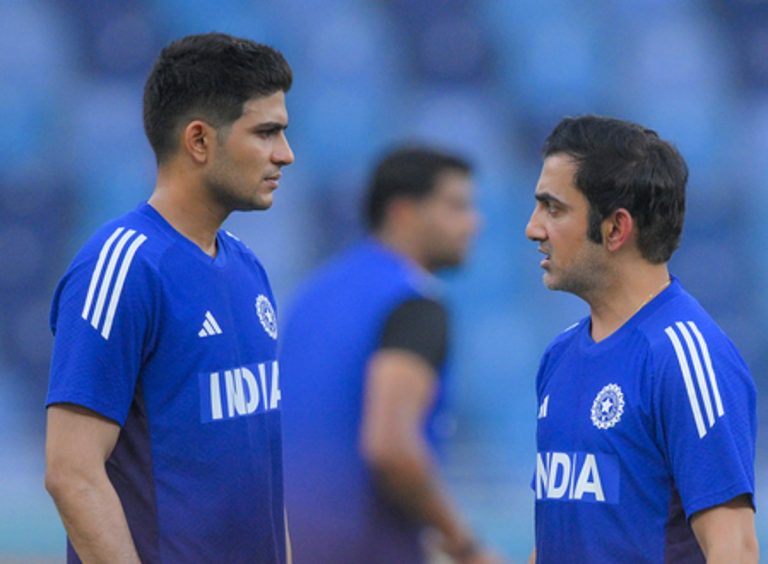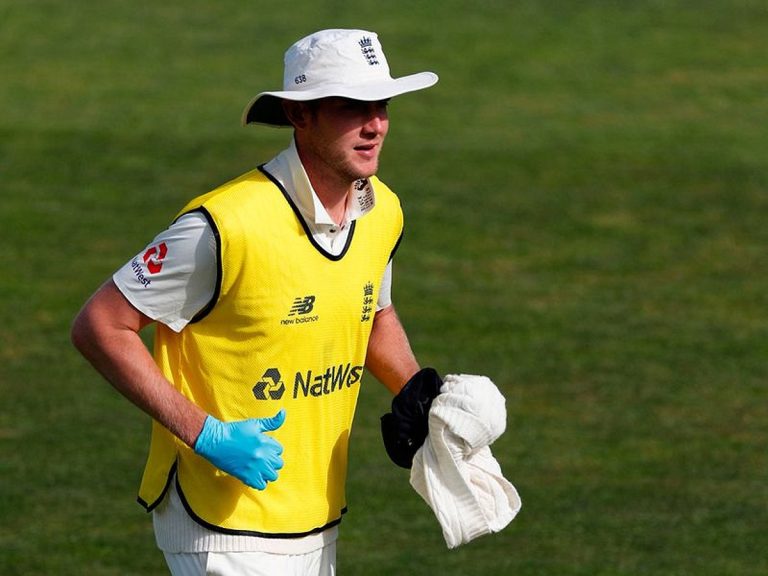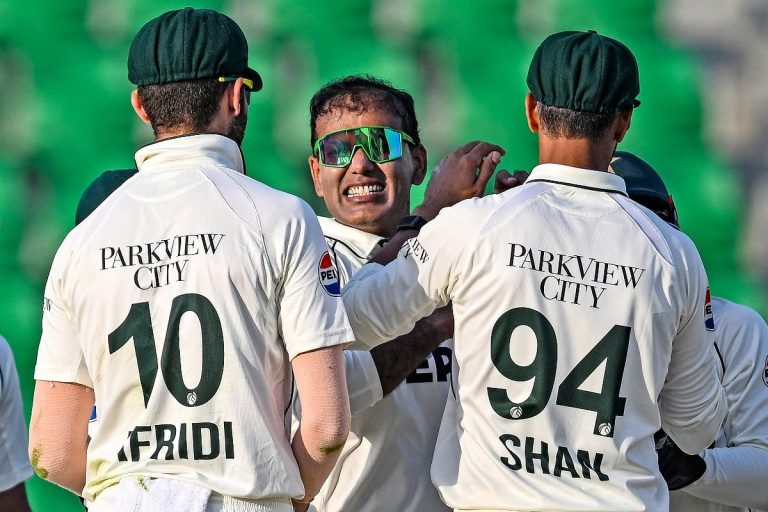Pakistan Takes Advantage of South Africa’s Fielding Errors
On the first day of the second Test in Rawalpindi, Pakistan took advantage of South Africa’s poor fielding, finishing the day at 259-5. The match began with Pakistan winning the toss and opting to bat, a decision that proved beneficial despite several missed opportunities for the visitors.
Key Performances
Captain Shan Masood led the charge for Pakistan, scoring 87 runs before being dismissed. His innings included two fours and three sixes, but he was fortunate to survive a dropped catch on 71. Abdullah Shafique also contributed significantly, scoring 57 runs, although he was dropped four times during his innings. The two batsmen formed a crucial partnership, adding 111 runs for the second wicket.
As the day progressed, Saud Shakeel and Salman Agha remained at the crease, finishing the day unbeaten with scores of 42 and 10, respectively. Pakistan is aiming for a 2-0 series victory against the reigning world Test champions.
South Africa’s Bowling Struggles
South African pacer Kagiso Rabada managed to claim the wicket of Mohammad Rizwan for 19 runs, providing a brief respite for his team. Spinner Keshav Maharaj, who took 2-63, and Simon Harmer, who finished with 2-75, were the primary bowlers for South Africa. Surprisingly, Senuran Muthusamy, who had a strong performance in the first Test, bowled only four overs.
The final session saw Masood’s dismissal, caught by Marco Jansen after attempting an aggressive sweep shot. Earlier, Shafique’s innings ended when he edged a delivery from Harmer to wicketkeeper Kyle Verreynne. Babar Azam, under pressure to regain form, was dismissed for just 16 runs, extending his century drought to 29 Test innings.
Missed Opportunities
South Africa’s fielding woes were evident, with five dropped catches throughout the day. Maharaj dropped Shafique on 15, and Aiden Markram missed him on 41 and 53. Shafique was also fortunate to survive a near miss when a delivery from Jansen rolled onto the stumps without dislodging the bails.
In the morning session, South Africa’s only breakthrough came when Harmer bowled Imam-ul-Haq for 17 runs. Rabada faced his own misfortune when Shafique was dropped in the slips on the very first ball of the match.
Team Changes
Having won the first Test by 93 runs, Pakistan made a strategic decision to include a third spinner, Asif Afridi, in place of fast bowler Hasan Ali. At 38 years and 299 days, Afridi became the second oldest Pakistani Test debutant, following Miran Bakhsh, who debuted at 47 years and 284 days in 1955.
FAQs
What was the final score at the end of the first day?
Pakistan finished the first day at 259-5, with Shan Masood top-scoring at 87 runs.
Why did South Africa struggle in the field?
South Africa dropped five catches, which significantly impacted their bowling performance and allowed Pakistan to build a strong total.
Who were the standout bowlers for South Africa?
Keshav Maharaj and Simon Harmer were the standout bowlers, taking two wickets each, but their efforts were hampered by poor fielding.
Conclusion
Pakistan’s strong batting performance, coupled with South Africa’s fielding errors, set the stage for a promising second day. With Saud Shakeel and Salman Agha at the crease, Pakistan will look to extend their lead and secure a series victory. South Africa must regroup and improve their fielding to remain competitive in this match.
The second Test match is crucial for both teams, as it not only affects the series outcome but also impacts their standings in the ICC World Test Championship. Pakistan, having secured a victory in the first Test, is looking to capitalize on their home advantage and build momentum. South Africa, on the other hand, will need to address their fielding issues quickly to avoid further setbacks in the match.
The conditions in Rawalpindi have generally favored batting, with a flat pitch that allows for good stroke play. However, the pressure of the match can lead to lapses in concentration, as seen in South Africa’s fielding performance. The team will need to refocus and ensure that they capitalize on any chances that come their way in the remaining days of the Test.
As the series progresses, individual performances will be closely scrutinized, particularly those of key players like Babar Azam and Kagiso Rabada, who are expected to lead their respective teams. The outcome of this Test could have implications for team selections and strategies in future matches, making it a pivotal moment for both sides.
Also Read:
Total Chess World Championship Tour to Launch in 2026







